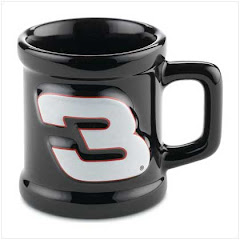To Certify or Not to Certify?
Shade-grown coffee has enjoyed the spotlight only sporadically in certain parts of the United States. One of the main reasons is that shade lacks a worldwide champion like the International Federation of Organic Agriculture Movements (IFOAM) or Fair Trade Labeling Organizations International (FLO), both of which have created widely accepted and enforceable definitions and standards for their certification systems.
Shade-grown coffee has enjoyed the spotlight only sporadically in certain parts of the United States. One of the main reasons is that shade lacks a worldwide champion like the International Federation of Organic Agriculture Movements (IFOAM) or Fair Trade Labeling Organizations International (FLO), both of which have created widely accepted and enforceable definitions and standards for their certification systems.
Some critics contend that the term "shade" itself is a misnomer that prevents its widespread acceptance and that the concept should be re-branded as "habitat-friendly" or "ecosystem-friendly" to convey the benefits it provides. Others take the opposite tack, arguing that the shade concept should refer to the problems it addresses, such as deforestation.
The U.S. has two separate shade certification systems intended to ensure that Latin American shade-grown coffee is produced under a set of scientific guidelines. One is Eco-OK program development by the Rainforest Alliance and a network of Latin America environmental organizations, and the other is the Smithsonian Migratory Bird Center (SMBC) criteria. Both systems' standards require a minimum of 40 percent shade coverage, as well as specified tree heights and numbers of non-deciduous native tree species.
Eco-OK is a stand-alone certification that covers many aspects of farming. It requires a minimum of 12 species of native trees and at least 70 trees per hectare (one hectare equals 2.47 acres). It also includes regulations regarding agrochemical use, water resource, soil and waste management, hunting, working conditions, and community relations. Within the next year, Eco-OK auditors will begin to certify for organic and fair-trade criteria as well.
SMBC guidelines focus exclusively on shade. In September 2000, SMBC began a series of workshops to standardize the definition of shade and to align itself with organic certifiers so that a single technician can inspect for shade and organic standards in one visit. Currently, all SMBC-certified farms must also have organic certification.
Francisco Mena, a general manager of the Lomas Al Rio coffee farm, recently went through this new certification process, making Lomas Al Rio the first SMBC-certified farm in Costa Rica. He explains that an organic inspector visiting his farm had completed one of the SMBC workshops, so during his inspection for organic, he recommended that he also inspect for SMBC standards. Mena approved his idea, and the total cost for certification was around $320.
The trend toward integrating certification systems is occurring in other areas as well. For example, FLO criteria for bananas already includes some environmental standards. And the Eco-OK's Sustainable Agriculture Network is working with FLO, IFOAM, and Social Accountability International to develop a "Social Accountability in Agriculture" program. These initiatives are important, because many farmers find the preparation, transition to compliance, and certification difficult and costly. For example, farmers seeking Eco-OK certification must pay for the technicians to perform site visits and evaluations ($7.50 per hectare), and they must cover the technicians' travel-related expenses ($100-$150 per day plus travel expenses, depending on where the nearest inspector is located). Achieving and maintaining more than one certification is simply beyond the economic capacity of most producers.
For this reason, a "super seal" concept that combines organic, shade and fair-trade criteria is gaining support among importers, roasters, and retailers. In the Sustainable Coffee Survey, nearly two-thirds of the specialty coffee industry supported a "super seal" as a simpler way of communicating sustainability in the marketplace.
Still, there are many other areas of confusion and contention regarding shade in the coffee industry. In the Sustainable Coffee Survey report, nearly 45 percent of the companies claiming to carry shade-grown coffee did not even know who their shade-certifying agency was. Many importers, roasters and retailers add to the confusion by selling "verified shade" coffee, which comes from plantations that have not been certified by Eco-OK or SMBC but have been visited by someone—often an importer—who, without scientific guidelines, checks to make sure shade trees are present on the farms. Most people seem to agree that certified-shade is the clearest way to convey the concept in the marketplace and provide a transparent method of ensuring validity of shade claims.










No comments:
Post a Comment